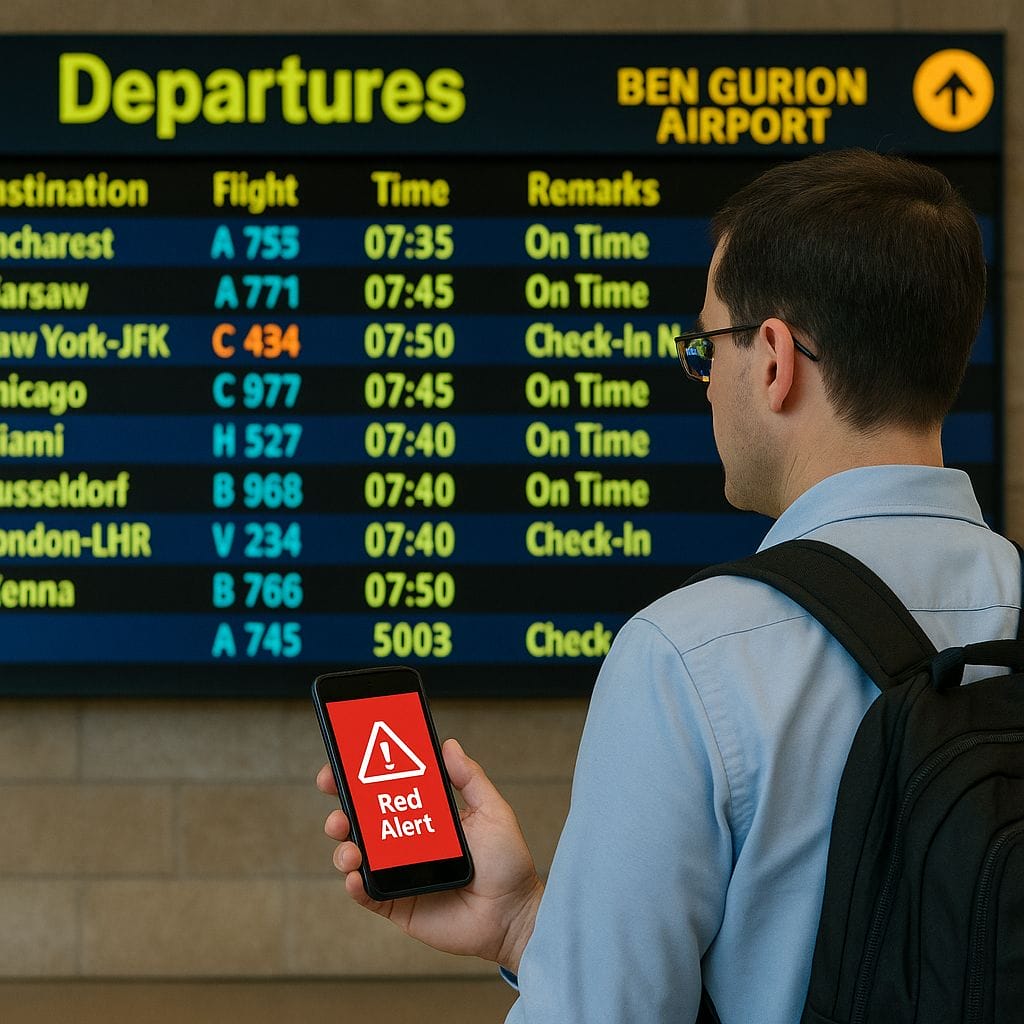In light of increasing regional instability and persistent security threats, the U.S. Department of State has raised its travel advisory level for Israel to Level 3: Reconsider Travel. The updated guidance reflects a heightened risk landscape in Israel, the West Bank, and Gaza, urging American citizens to carefully evaluate the necessity of travel to the area amid growing fears of terrorism and civil unrest.
The advisory, issued by the Bureau of Consular Affairs, emphasizes the unpredictable and rapidly evolving security situation in the region. With tensions flaring between armed groups, lone actors, and extremist elements, U.S. officials caution that public spaces frequented by tourists may be targeted in future attacks.
Worsening Security Environment in Israel and Surrounding Areas
According to the State Department, terrorist groups and individual extremists continue to plan and attempt attacks across Israel. Targets may include transportation hubs, commercial shopping areas, tourist attractions, and local government buildings. These acts of violence can occur without advance notice, often leaving little time for adequate response.
While the alert does not constitute a ban on travel, it sends a strong message to American travelers to exercise increased vigilance, reconsider non-essential trips, and stay informed of the evolving conditions on the ground.
Area-Specific Advisories: Israel, West Bank, and Gaza
Israel
Travelers to Israel are advised to:
- Avoid crowded public spaces such as malls, markets, and major tourist sites.
- Monitor security developments by following trusted local news sources and subscribing to updates from the U.S. Embassy in Jerusalem.
- Know the location of the nearest bomb shelters, especially in high-risk areas like Tel Aviv, Ashkelon, and cities near the Gaza border.
- Follow the directives of Israeli authorities, including law enforcement and emergency responders.
- Carry essential documents such as passports, exit permits, and insurance information in secure and accessible locations.
- Plan for airport delays and flight disruptions, especially at Ben Gurion International Airport, as airlines may adjust schedules with little notice.
West Bank
The State Department advises reconsidering travel to the West Bank due to the ongoing threat of terrorism and civil unrest. Non-essential movement by U.S. government employees is restricted, with exceptions only for daylight travel on approved routes to cities such as Bethlehem, Jericho, and Ramallah. Travelers are urged to avoid demonstrations and maintain heightened awareness at checkpoints and near Israeli military installations.
Gaza
Gaza remains under a Level 4: Do Not Travel advisory. Due to the persistent threat of armed conflict, terrorism, and civil unrest, the U.S. government has no ability to provide routine or emergency consular services in the Gaza Strip. The security environment in the area is extremely volatile, and American citizens are strongly urged not to enter.
Precautions for U.S. Citizens Traveling in the Region
For those who choose to travel despite the advisory, the Department of State recommends the following precautions:
- Maintain situational awareness at all times and be cautious at crowded events, public transport terminals, and checkpoints.
- Download safety apps such as Israel’s Home Front Command “Red Alert,” which offers real-time missile warnings.
- Avoid all demonstrations—even peaceful ones—as they can escalate into violent confrontations without warning.
- Keep a low profile, avoid political discussions in public, and dress modestly in sensitive areas.
- Enroll in the Smart Traveler Enrollment Program (STEP) to receive safety alerts and help the embassy contact you in emergencies.
- Secure comprehensive travel insurance that includes coverage for emergency medical services and evacuation.
Travel and Airline Disruptions
The advisory warns that commercial air travel to and from Israel could be impacted by rising tensions. Airlines may delay or cancel flights without prior notice. Travelers are encouraged to maintain close contact with their airlines and allocate extra time for airport security procedures. As seen during past regional escalations, international carriers have occasionally suspended operations temporarily in response to rocket fire or military actions.
Tourism Implications: Balancing Travel Aspirations with Safety
Israel remains a destination rich in religious heritage, cultural history, and archaeological wonders. However, the volatile situation necessitates a thoughtful approach for those considering a visit. Locations such as Jerusalem, Nazareth, and the Dead Sea continue to draw international interest, but tourists must be prepared to navigate a complex and sometimes tense security landscape.
The advisory serves not only as a cautionary measure but also as a guide to making informed travel decisions. Responsible travel planning, real-time updates, and adherence to safety protocols are essential to ensuring a secure visit.
Final Note
The U.S. government’s decision to raise the travel advisory for Israel to Level 3 underscores the evolving risks in the region. For American travelers with family ties, religious pilgrimages, or business interests in Israel, preparation is key. While travel remains possible, it comes with the caveat of increased personal responsibility and awareness.
As global tensions persist and local dynamics fluctuate, staying connected with the U.S. Embassy, following local instructions, and being adaptable will be critical to safeguarding one’s journey.
For more travel news like this, keep reading Global Travel Wire















